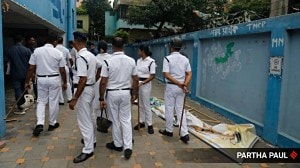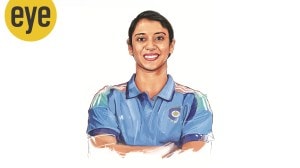Flexible law, inflexible justice
Imrana is unfortunate not so much because of the heinous crime purported to have been committed against her, but because of her victimizatio...

Imrana is unfortunate not so much because of the heinous crime purported to have been committed against her, but because of her victimization by the media. We don’t know for sure if she was raped by her father-in law, since the case is under investigation. But one thing we do know is that the media has raped her repeatedly.
In other such cases where revealing the real identity could embarrass the victim and her family, it has invariably been kept secret by the media. Of course Imrana, Gudia and others like them are exceptions to this golden rule. It is common practice to make an issue of stray social problems or criminal incidents in Muslim society. Child marriage of Hindus is rampant in Madhya Pradesh, Sati is still practiced in Rajasthan. Hindu Undivided Family laws have taken away the right of inheritance of Hindu women altogether. But these are not issues highlighted by the media. TV channels, while making a hue and cry about Imrana, are remarkably reticent about these other ills in India. What they really need is the pretext of a Gudia or an Imrana to have debates, discussions, and big or small fights on TV, so that Islamic Law can be subjected to criticism.
The irony is that this is being done without bothering to get authentic knowledge of either Islamic Law or the case itself. Even when the facts of the case are drastically changed after investigation, there is not a word of penitence, apology or regret. Naturally, all Muslims are united in the view that the suspect, if proven guilty, should be awarded the most stringent possible punishment. The fact is that no law should be studied in isolation, as it forms an integral part of jurisprudence as a whole.
Since Deoband represents the Hanafi school, the fatwa in question naturally reflects Hanafi fiqh. There are four major schools of thought available to Muslims. Islamic laws have an inherent elasticity to suit various situations; it is time that Muslims took advantage of this legal elasticity.
It is sad that an eminent lawyer like Soli Sorabjee too was so carried away by media coverage that he simply ignored the basic principle of justice; the accused should not be treated as a perpetrator of crime unless proven guilty. He gives his verdict in ‘‘Imrana and the Fatwa’’ (The Indian Express, July 2): ‘‘A young woman was raped by her father-in-law’’. According to Sorabjee, the fatwa of Darul Uloom Deoband states that Imrana has become haram, is not fit to live with her husband, and instead should live with her father-in law. I don’t know his source for this version of the fatwa. I am sure he must not have seen the text of the fatwa (or its copy), nor must he have bothered to check it before incorporating this completely incredible and distorted version as the fatwa in his article.
The fatwa in fact is not a decree; it is an opinion of the Islamic scholar about the implication of Islamic laws in certain situations. It’s like asking a judge as to what would be the punishment of a person committing murder, and the judge replying that he would get life imprisonment. The judge did not give his ‘‘judgment’’ here, nor is it an order to execute. This opinion is subject to the accused getting a fair trial at an appropriate court where an order to execute the punishment is passed by a competent judge.
To take a fatwa as equivalent to a decree or a court order is inappropriate. Fatwas do not even contain names. The fatwa in this case was obtained based on the hypothetical case of a woman raped by her father-in-law. The fatwa (i.e., learned interpretive opinion) as per the Hanafi School is that such a woman does not remain the wife of her husband and becomes haram for him. What happens to Imrana, specifically, however, depends on whether she was in fact raped by her father-in-law, not on the letter of this fatwa.
The writer, a member of the Muslim Personal Law Board and Executive Director of the Iqra Education Foundation, can be contacted at uzmanaheed99yahoo.com



- 01
- 02
- 03
- 04
- 05




























